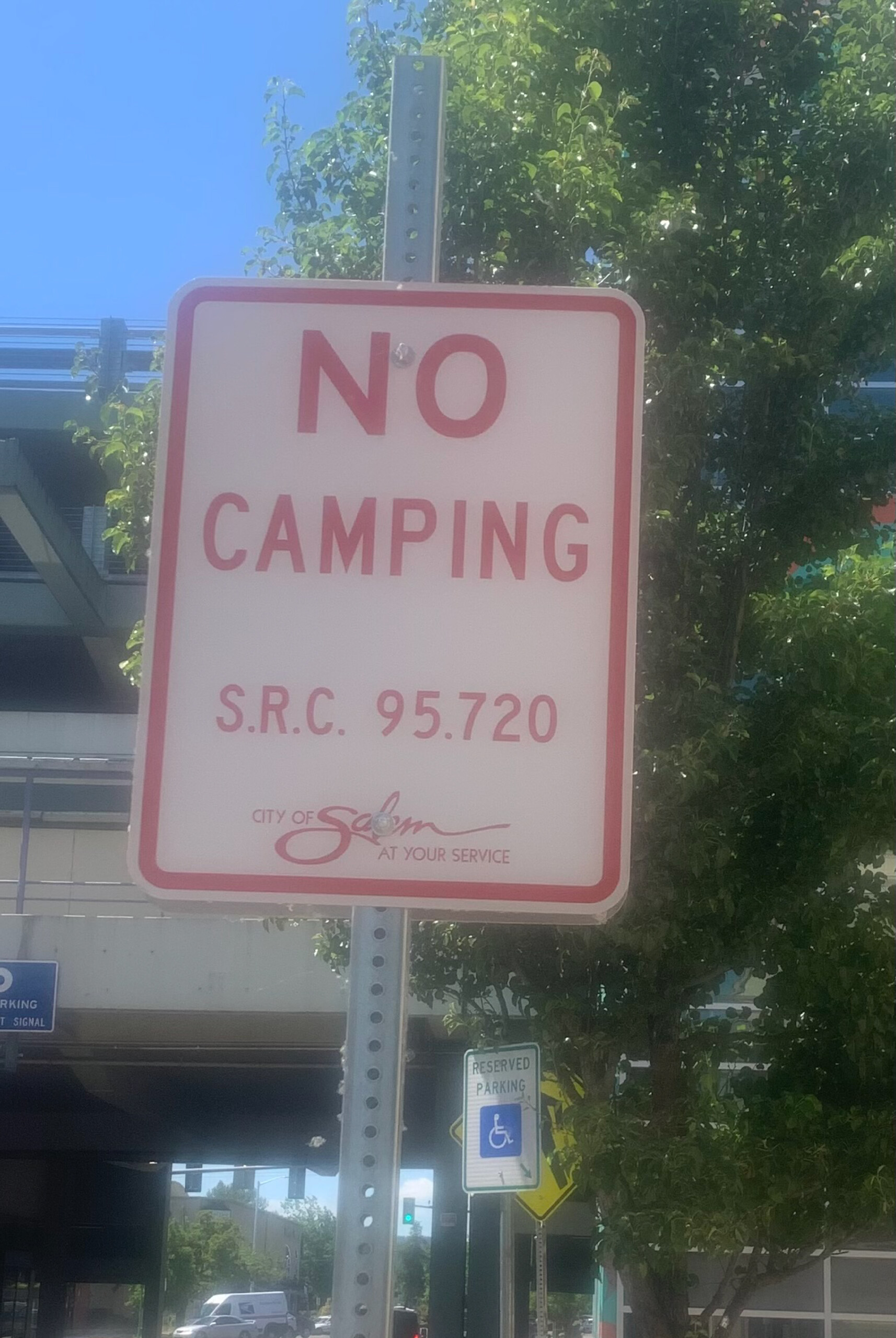Supreme Court ruling on Homeless Camping Restrictions finds Oregon on the Outside Looking in

Sleepless in Seattle? Or, how about Los Angeles, Sacramento or Boise? Issues surrounding if, where and when homeless individuals are allowed to camp on public property has resurfaced now that the United States Supreme Court has overturned a landmark 9th Circuit ruling that had declared camping ordinances like the ones in Boise, Idaho, and Grants Pass, Oregon, a violation of the 8th amendment banning ‘cruel and unusual punishment’.
Nine western states are given new flexibility to address homeless camping rules but, ironically, Oregon and its cities like Salem will not have access to that flexibility due to the passage of HB 3115 in the 2021 Legislature. In an effort to provide guidance and clarity to local governments following the 9th Circuit’s ruling in Martin V Boise, The Legislature passed a bill, predicated on that decision, codifying the lower court’s ruling into state law.
Local governments almost universally supported the bill in 2021 based, in part, on the assumption that the 9th Circuit’s decision was now settled law. Only one local government, Marion County, submitted written testimony opposing passage. At the time, Marion County said that; “each unique jurisdiction requires a different creative approach to address the issues facing their community,”
Statewide reaction to the ruling was, as expected, widely divergent. Homeless rights advocates decried the ruling, suggesting local governments would seek to put more people in jail simply for meeting the human need to sleep. Supporters of the ruling, released a statement applauding the decision.
“This decision recognizes the critical need for local governments to manage public spaces effectively, ensuring safety and order for all citizens,” they wrote.
In codifying that ruling in state law, the Legislature also added other conditions. It requires that any restrictions must be “objectively reasonable as to time, place and manner.” It also created an affirmative defense for campers found in violation of a camping restriction to claim that the law is not objectively reasonable and allows them to file suit to challenge the objective reasonableness of local laws.
Some local governments that supported the passage of HB 3115 as Fait Accompli, are likely to change their stance and encourage the Legislature to revisit the law. Marion County’s Cameron expects that his county will have additional company in that pursuit this time.
“Local communities should not be limited in how they protect their homeless populations and their residents. I would expect the Legislature to take this issue back up in the next session,” he said.
There may also be concern that if other western states begin to impose stricter camping regulations, that some of the homeless population in those states may journey to Oregon cities to take refuge from those restrictions, exacerbating the already strained resources of local governments. California Governor, Gavin Newsome is one who has called for a tougher approach to occupation of public spaces in that state.
“This provides state and local officials the definitive authority to implement and enforce policies to clear unsafe encampments from our streets,” Newsome said.
Whether the legislature will change or repeal HB 3115 is uncertain as many elected officials are still evaluating the impact of the Supreme Court ruling. There is little doubt, however, that there will be interest groups advocating for legislative hearings.





